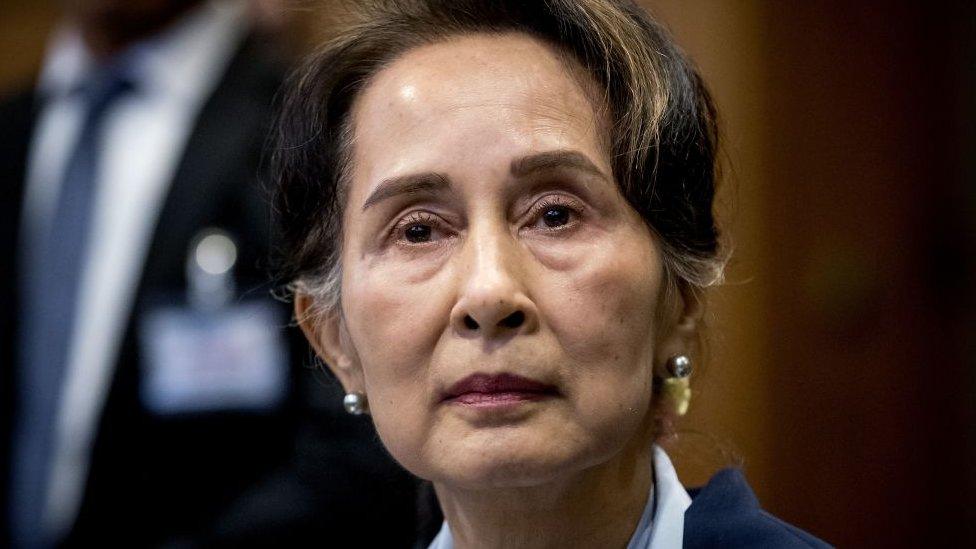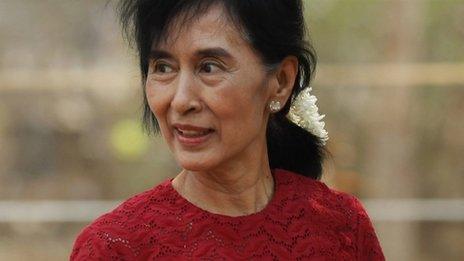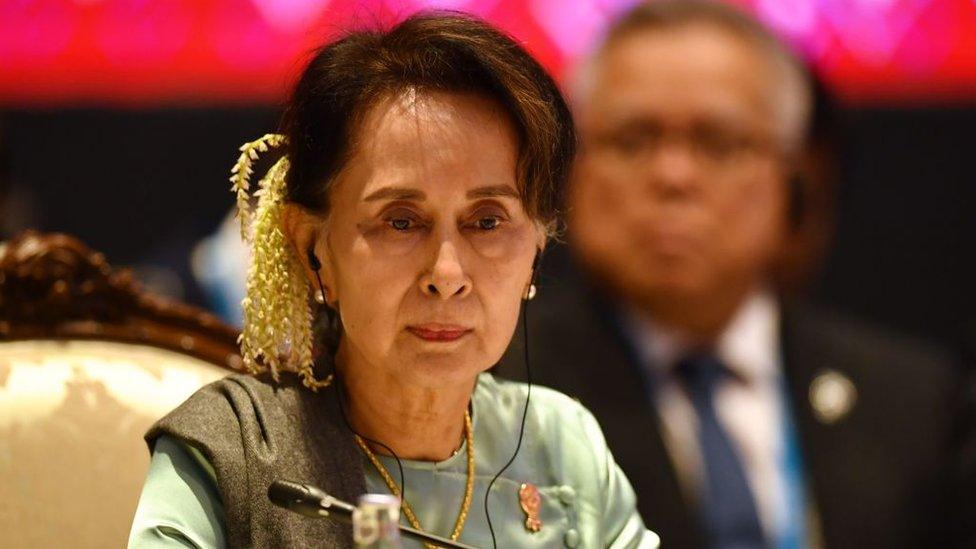Aung San Suu Kyi: Myanmar ex-leader sent to solitary confinement
- Published

Myanmar's deposed civilian leader Aung San Suu Kyi has been moved from house arrest to solitary confinement in a prison in the capital Nay Pyi Taw.
The Nobel laureate, 77, was arrested when the military overthrew her elected government in February 2021.
For the past year she has been held at an undisclosed location in the capital.
Ms Suu Kyi has already been sentenced to 11 years in jail and denies a host of charges which have been widely condemned as politically-motivated.
Her move to solitary confinement makes her more isolated than ever - she became a global democracy icon during a previous period of military rule when she spent 15 years in detention, but almost all of it was under house arrest.
It's thought Ms Suu Kyi, who remains highly popular in the country, will attend trial hearings from a special court set up inside prison.
Sources close to the court told BBC Burmese that she had been moved on Wednesday to separate, specially-built accommodation inside the jail. Her colleague, ousted President Win Myint, is in similar solitary confinement in the jail.
According to the sources, Ms Suu Kyi is in good health, with three female prison staff assigned to assist her.
A brief statement from the military government confirmed her move to prison, saying it was in accordance with criminal laws in Myanmar, also known as Burma.
Human rights groups have condemned the secret trials as a sham. The closed-door hearings have been shut to the public and media, and Ms Suu Kyi's lawyers forbidden from speaking to journalists.
It is unclear how long Ms Suu Kyi, who vanished from public view after the coup, will stay in solitary confinement.
Although the location of her house arrest was not disclosed, she is known to have had several close companions with her until now, the BBC's Jonathan Head reports.
AFP news agency quoted a source saying Ms Suu Kyi's domestic staff and her dog had not accompanied her to prison.
The charges on which she has been convicted in several trials so far include incitement, corruption, breaching Covid rules and breaking a telecommunications law.
More trials await and the military is accused of planning to keep her in custody for the rest of her life. If convicted on all the charges, she would face a total jail sentence of more than 190 years, by some estimates.
"What we are seeing is the Myanmar junta moving towards a much more punitive phase, towards Aung San Suu Kyi," Phil Robertson, deputy Asia director for Human Rights Watch, told AFP.
"They are obviously trying to intimidate her and her supporters."
The coup came months after Ms Suu Kyi's National League for Democracy (NLD) won general elections by a landslide.
The military alleged voter fraud, but independent election observers said the vote was largely free and fair.
The coup triggered widespread demonstrations, prompting a military crackdown on pro-democracy protesters, activists and journalists.
Ms Suu Kyi - and many members of her party - are among more than 14,000 people who have been arrested.
Some 2,000 people have been killed in the crackdown on dissent, according to the Assistance Association for Political Prisoners (Burma).
Opposition to the military is widespread and some parts of the country are engulfed in armed conflict.
You might also be interested in:
"They have guns but we have people": Inside Myanmar’s Spring Revolution
- Published6 December 2021

- Published10 January 2022
